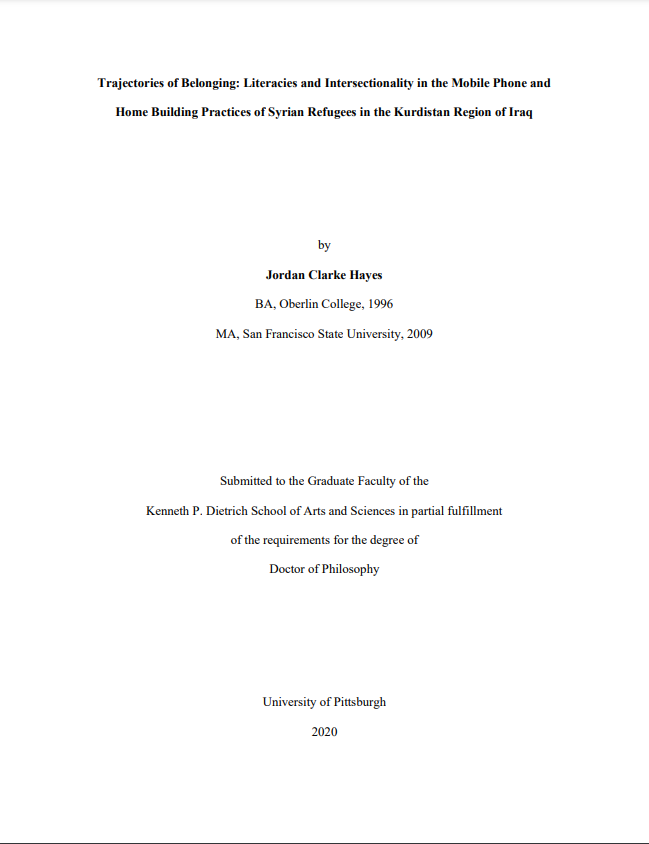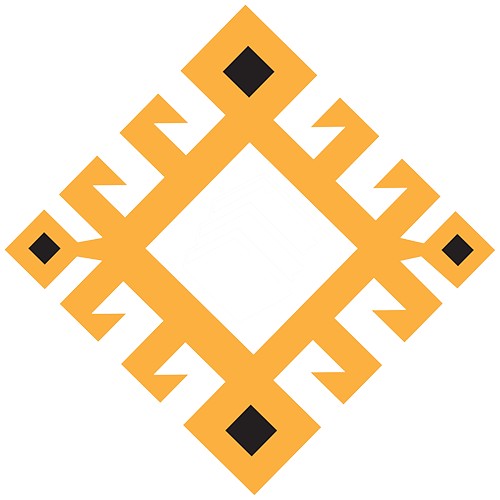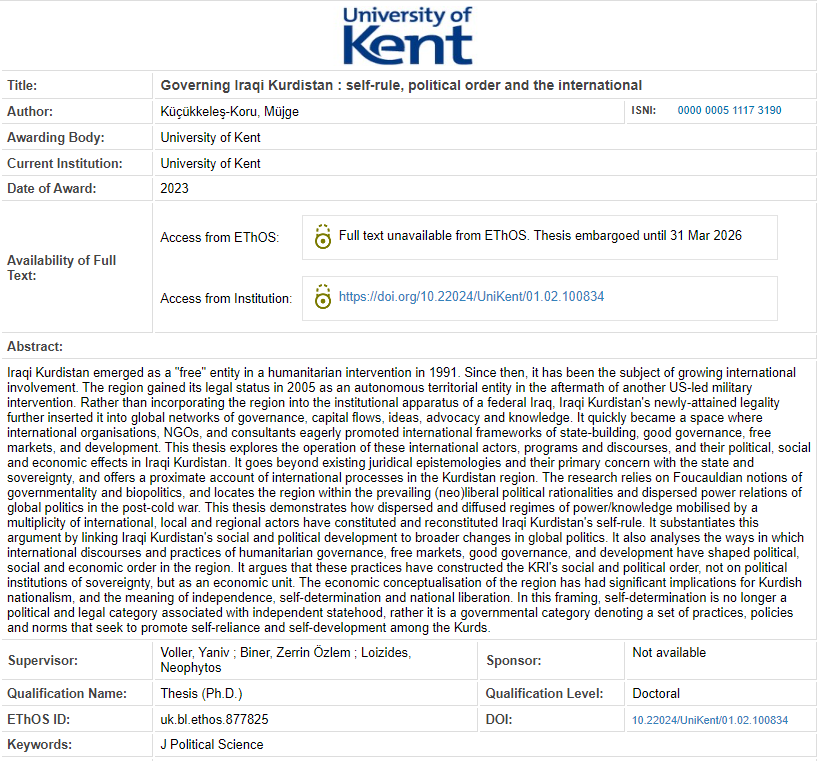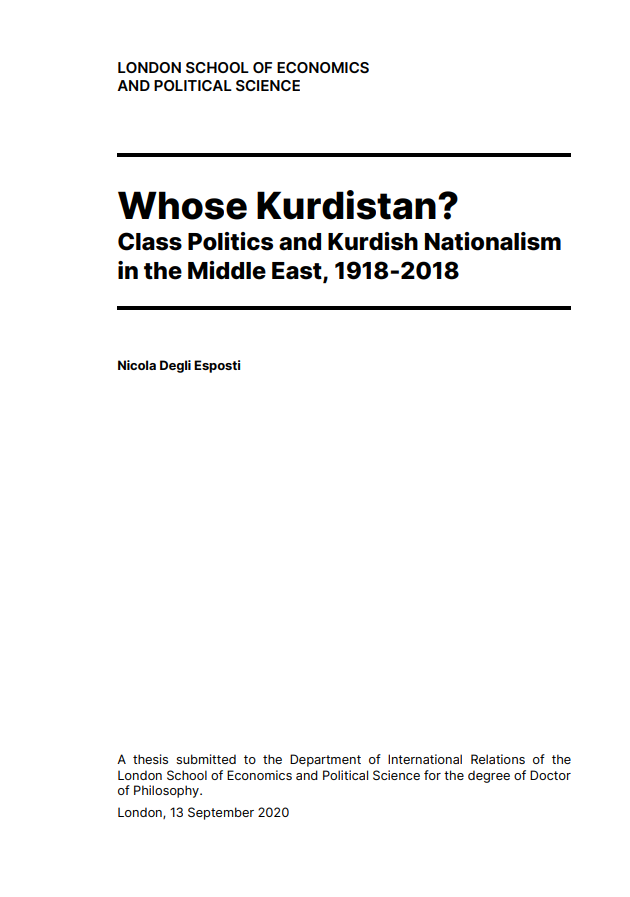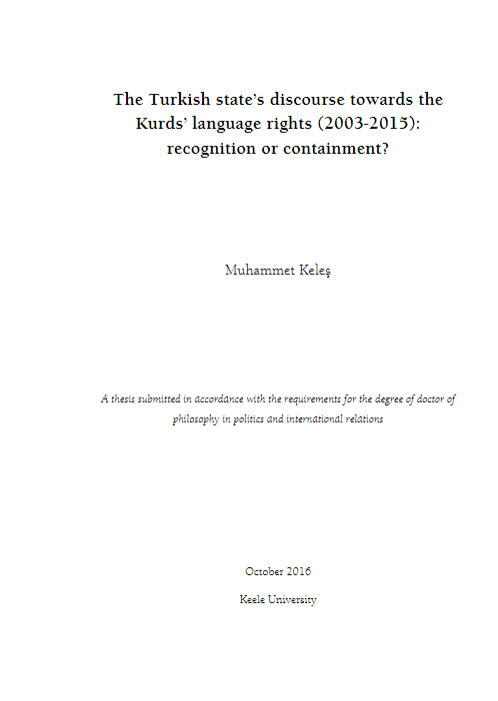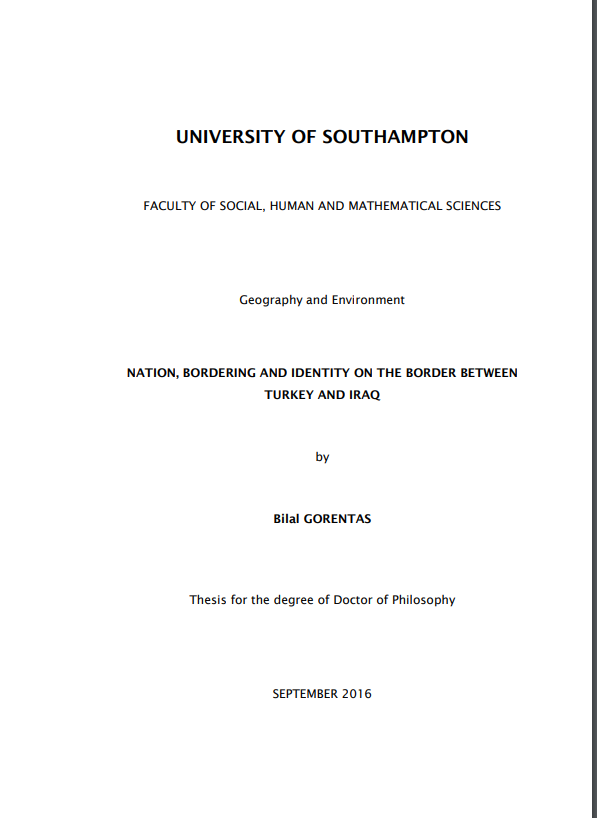Iraqi Kurdistan emerged as a “free” entity in a humanitarian intervention in 1991. Since then, it has been the subject of growing international involvement. The region gained its legal status in 2005 as an autonomous territorial entity in the aftermath of another US-led military intervention. Rather than incorporating the region into the institutional apparatus of a federal Iraq, Iraqi Kurdistan’s newly-attained legality further inserted it into global networks of governance, capital flows, ideas, advocacy and knowledge. It quickly became a space where international organisations, NGOs, and consultants eagerly promoted international frameworks of state-building, good governance, free markets, and development. This thesis explores the operation of these international actors, programs and discourses, and their political, social and economic effects in Iraqi Kurdistan. It goes beyond existing juridical epistemologies and their primary concern with the state and sovereignty, and offers a proximate account of international processes in the Kurdistan region. The research relies on Foucauldian notions of governmentality and biopolitics, and locates the region within the prevailing (neo)liberal political rationalities and dispersed power relations of global politics in the post-cold war. This thesis demonstrates how dispersed and diffused regimes of power/knowledge mobilised by a multiplicity of international, local and regional actors have constituted and reconstituted Iraqi Kurdistan’s self-rule. It substantiates this argument by linking Iraqi Kurdistan’s social and political development to broader changes in global politics. It also analyses the ways in which international discourses and practices of humanitarian governance, free markets, good governance, and development have shaped political, social and economic order in the region. It argues that these practices have constructed the KRI’s social and political order, not on political institutions of sovereignty, but as an economic unit. The economic conceptualisation of the region has had significant implications for Kurdish nationalism, and the meaning of independence, self-determination and national liberation. In this framing, self-determination is no longer a political and legal category associated with independent statehood, rather it is a governmental category denoting a set of practices, policies and norms that seek to promote self-reliance and self-development among the Kurds.
